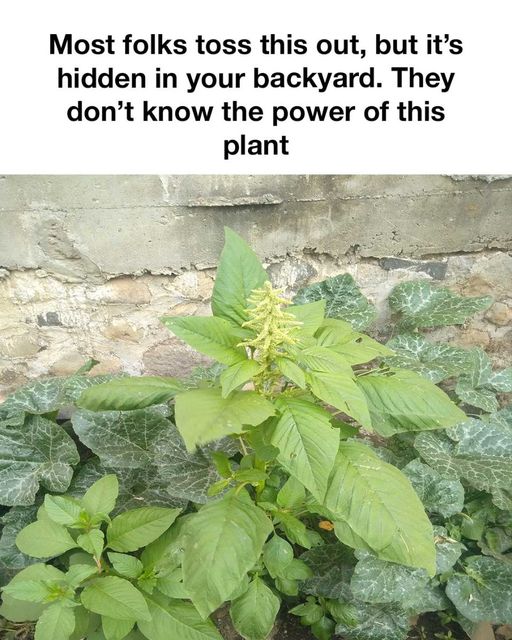ADVERTISEMENT
Culinary Uses
In many parts of the world, particularly in Africa, Asia, and Central America, pigweed is not considered a weed but a valuable food source. The leaves can be cooked much like spinach or kale and used in a variety of dishes. They can be sautéed, added to soups and stews, or even blended into smoothies for a nutritional boost.
The seeds of pigweed, often referred to as amaranth, are a superfood in their own right. They can be toasted and added to salads, cooked like quinoa, or ground into flour for baking. Amaranth flour is gluten-free and can be used to make bread, pancakes, and other baked goods, offering a nutritious alternative to traditional wheat flour.
Medicinal Benefits
Beyond its nutritional value, pigweed has been used in traditional medicine for its healing properties. Here are some of the ways pigweed has been used medicinally:
1. Digestive Health: Pigweed leaves have been used to treat digestive issues such as diarrhea and constipation. The plant’s high fiber content aids in digestion and helps maintain a healthy gut.
2. Anti-inflammatory: The plant has been traditionally used to reduce inflammation and alleviate pain. It can be applied topically or consumed as a tea to help with conditions like arthritis and skin irritations.
3. Wound Healing: Pigweed has antimicrobial properties that make it useful in treating wounds and preventing infections. Crushed pigweed leaves can be applied directly to cuts and scrapes to promote faster healing.
4. Respiratory Health: Pigweed has been used as a remedy for respiratory issues such as coughs and bronchitis. A tea made from the leaves can help soothe the throat and alleviate symptoms of respiratory infections.
Environmental Benefits
Pigweed isn’t just beneficial to humans—it also plays a role in the environment. The plant is known for its ability to improve soil health by adding organic matter and preventing soil erosion. Its deep root system helps break up compacted soil, allowing water and nutrients to penetrate more easily.
Moreover, pigweed can be used in natural farming practices as a cover crop to suppress weeds and improve soil fertility. Its rapid growth and dense foliage can outcompete other weeds, reducing the need for chemical herbicides.
Conclusion: Embrace the Power of Pigweed
Pigweed may be an uninvited guest in your garden, but before you pull it out and toss it on the compost heap, consider the untapped potential of this versatile plant. From its impressive nutritional profile to its medicinal properties and environmental benefits, pigweed is far more than just a weed—it’s a powerhouse of health and sustainability.
Advertisement
So, the next time you see pigweed popping up in your backyard, think twice before you discard it. Embrace the power of this hidden gem, and you may find that what was once a nuisance is now a valuable addition to your diet, medicine cabinet, and garden.
ADVERTISEMENT
